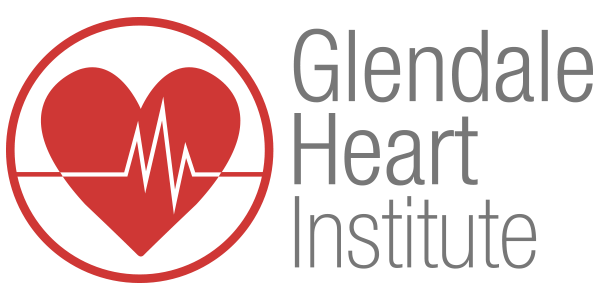Ectopic heartbeats are small changes in an otherwise normal heartbeat that lead to extra or skipped heartbeats. They often occur without a clear cause and are most often harmless.
The two most common types of ectopic heartbeats are:
Premature ventricular contractions (PVC)
Premature atrial contractions (PAC)
The two most common types of ectopic heartbeats are:
Premature ventricular contractions (PVC)
Premature atrial contractions (PAC)
Continuous ambulatory cardiac monitoring (Holter monitor, patient-activated recording device, or implanted loop recorder)
Coronary angiography
ECG
Echocardiogram
Coronary angiography
ECG
Echocardiogram
Causes
Sometimes ectopic heartbeats are seen with:
Changes in the blood, such as a low potassium level (hypokalemia)
Decrease in blood supply to the heart
Heart muscle disease (cardiomyopathy)
Sometimes ectopic heartbeats are seen with:
Changes in the blood, such as a low potassium level (hypokalemia)
Decrease in blood supply to the heart
Heart muscle disease (cardiomyopathy)

Ectopic beats may be caused or made worse by smoking, alcohol use, caffeine, medications such as stimulants, and some illicit drugs.
Ectopic heartbeats are rare in children without heart disease that was present at birth (congenital). Most extra heartbeats in children are premature atrial contractions (PACs), which are almost always harmless.
In adults, ectopic heartbeats are common. They are most often due to PACs or PVCs. Their causes should be investigated, although usually no treatment is needed. Symptoms Symptoms include:
Feeling your heart beat (palpitations)
Feeling like your heart stopped or skipped a beat
Feeling of occasional, forceful beats
Note: There may be no symptoms.
Exams and Tests
A physical examination may show an occasional uneven pulse. If the ectopic heartbeats do not occur very often, your doctor may not find them during a physical exam.
Blood pressure is usually normal.
The following tests may be done:
Ectopic heartbeats are rare in children without heart disease that was present at birth (congenital). Most extra heartbeats in children are premature atrial contractions (PACs), which are almost always harmless.
In adults, ectopic heartbeats are common. They are most often due to PACs or PVCs. Their causes should be investigated, although usually no treatment is needed. Symptoms Symptoms include:
Feeling your heart beat (palpitations)
Feeling like your heart stopped or skipped a beat
Feeling of occasional, forceful beats
Note: There may be no symptoms.
Exams and Tests
A physical examination may show an occasional uneven pulse. If the ectopic heartbeats do not occur very often, your doctor may not find them during a physical exam.
Blood pressure is usually normal.
The following tests may be done:
Treatment
Limiting caffeine, alcohol, and tobacco may reduce the risk and frequency of ectopic heartbeats in certain people. Exercise often helps people who are inactive.
Most ectopic heartbeats do not need to be treated. The condition is only treated if your symptoms are severe or if the extra beats occur very often.
The cause of the heartbeats, if discovered, may also need to be treated.
Outlook (Prognosis)
Sometimes, ectopic heartbeats may mean you are at increased risk for other serious abnormal heart rhythms, such as ventricular tachycardia. When to Contact a Medical Professional
Call your health care provider if:
You keep feeling the sensation of your heart pounding or racing (palpitations)
You have palpitations with chest pain or other symptoms
You have this condition and your symptoms get worse or do not improve with treatment
Content Resource: http://www.nlm.nih.gov/medlineplus/ency/article/001100.htm
Content Resource: http://www.skills4nurses.com/index.cgi?article+157
Limiting caffeine, alcohol, and tobacco may reduce the risk and frequency of ectopic heartbeats in certain people. Exercise often helps people who are inactive.
Most ectopic heartbeats do not need to be treated. The condition is only treated if your symptoms are severe or if the extra beats occur very often.
The cause of the heartbeats, if discovered, may also need to be treated.
Outlook (Prognosis)
Sometimes, ectopic heartbeats may mean you are at increased risk for other serious abnormal heart rhythms, such as ventricular tachycardia. When to Contact a Medical Professional
Call your health care provider if:
You keep feeling the sensation of your heart pounding or racing (palpitations)
You have palpitations with chest pain or other symptoms
You have this condition and your symptoms get worse or do not improve with treatment
Content Resource: http://www.nlm.nih.gov/medlineplus/ency/article/001100.htm
Content Resource: http://www.skills4nurses.com/index.cgi?article+157
Cardiac Specialty Care
• Structural Heart Disease
• TAVR
• CardioMEMS (Heart Failure)
• PFO Closure
• TAVR
• CardioMEMS (Heart Failure)
• PFO Closure
• Coronary Intervention
• Complex Higher-Risk (And Indicated) Patients (CHIP) Angioplasty
• Atherectomy
• Impella and ECMO Support
• Complex Higher-Risk (And Indicated) Patients (CHIP) Angioplasty
• Atherectomy
• Impella and ECMO Support
• Peripheral Angioplasty
• Varicose Vein Treatment (Venous Ablation)
• DVT thrombectomy - IVC filter
• Carotid Stenting
• Varicose Vein Treatment (Venous Ablation)
• DVT thrombectomy - IVC filter
• Carotid Stenting
• Rhythm Management
• Pacemaker
• Holter Monitoring
• Exercise Stress Test
• Echocardiography
• Nuclear Stress Test
• Enhanced External Counterpulsation (EECP)
• Pacemaker
• Holter Monitoring
• Exercise Stress Test
• Echocardiography
• Nuclear Stress Test
• Enhanced External Counterpulsation (EECP)
